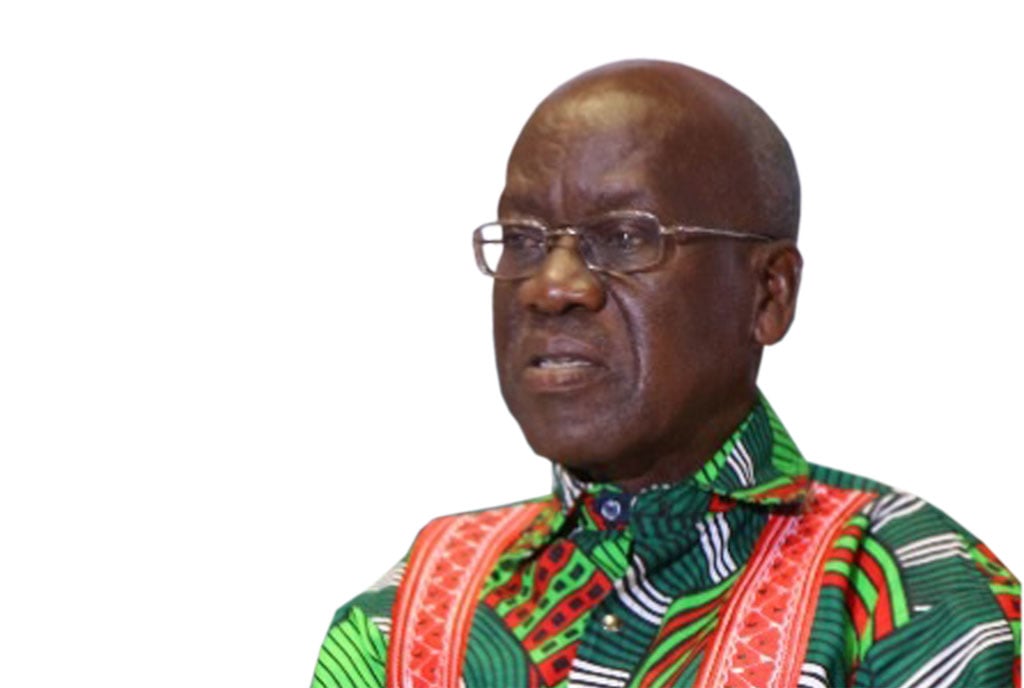Teach boys and girls scientific facts

Author: Prof Timothy Wangusa is a poet and novelist. PHOTO/FILE
What you need to know:
- The above paragraph is an otherwise accurate reproduction of the original – but for the insertion of one extra punctuation mark and the four-fold insertion of the word “scientific”.
Now, what I want is – scientific facts. Teach these boys and girls nothing but scientific facts. Scientific facts alone are wanted in life. Plant nothing else, and root out everything else. You can only form the minds of reasoning animals upon scientific facts: nothing else will ever be of any service to them. This is the principle on which I bring up my own children, and this is the principle on which I bring up these children. Stick to scientific facts, sir!”
The above paragraph is an otherwise accurate reproduction of the original – but for the insertion of one extra punctuation mark and the four-fold insertion of the word “scientific”. The original text is, of course, none other than the famous opening paragraph of the classic novel Hard Times (1854) by the highly acclaimed English novelist Charles Dickens (1812-1870).
The novel is a satiric and bitter attack on the negative effects of two philosophical and economic phenomena, namely, utilitarianism and industrialisation that were prevalent in mid-19th Century England; industrialisation especially having dehumanising effects on individual workers and working communities.
In Charles Dickens’ fictional but real-life story (attention: Uganda@2022!), the speaking voice at the commencement of the central action is that of Mr Thomas Gradgrind, who is the proprietor of a private experimental school where only facts are taught.
Gradgrind is caricatured as some robot-like figure that stands for a notion called “service” or “usefulness”. When he says that nothing except facts will ever be of use to the children seated there before him when they grow up, he means to say that they could instead, regrettably, have in their lives useless things that amount to non-facts or mere figments.
The background to “hard grinding” Gradgrind’s exaltation of the usefulness of facts was the philosophy of utilitarianism, which had come into existence in Britain a whole century earlier. Its most vocal proponent being Jeremy Bentham (1748-1832), utilitarianism evaluated actions based upon their consequences – for instance, if they contributed to “the greatest happiness of the greatest number”; or if they helped in changing or eliminating useless and corrupt laws and social practices.
In our own day and age, continent and country, we are not short of multiple versions of Thomas Gradgrind. Where the original Gradgrind emphasises facts, his current replicas or mimics emphasise science, or statistics, or machines, or money making mechanisms.
Indeed I hear them decreeing or declaring, “Teach the children of our progressive country nothing but current scientific facts. Teach them only the scientific facts to be found in everything. Teach them only the science that can be found in the so-called arts subjects at school. Teach them martial arts, for sure. Teach them, above all, the scientific facts of poverty banishment and wealth maximisation. And forbid them never to make unscientific and self-contradictory statements like, ‘The state of the art machine’.”
Back to Hard Times: Gradgrind’s notion of “facts” has it that you do not know something for a fact unless and until you can define it! So he picks on one of the pupils arranged before him, Sissy Jupe, who lives with horses and whose father is a professional horse handler, and asks her to define a horse. The shy girl gets so flustered that she offers no answer. And Gradgrind triumphantly declares, “Girl number 20 unable to define a horse! Girl number twenty possessed of no facts, in reference to one of the commonest of animals!”
Continuing the above narrative, Gradgrind next picks on some boy to define a horse. “Blitzer, yours….Your definition of a horse.”
And Blitzer goes, “Quadrupled. Graminivorous. Forty teeth…..” and so on.
“Now girl number 20,” pronounces Mr Gradgrind, “you know what a horse is.”
And such, our own scientific visionaries might conclude, should be the factual knowledge and scientific terminology of the citizens and the school children of our science-led country and our science-based economy.
Prof Timothy Wangusa is a poet and novelist.


